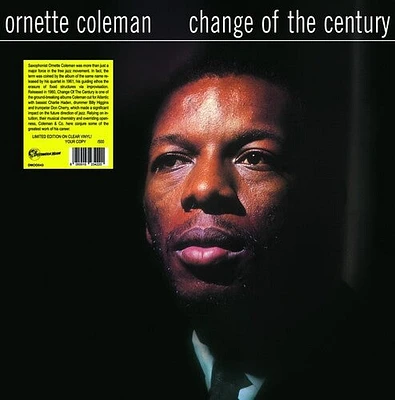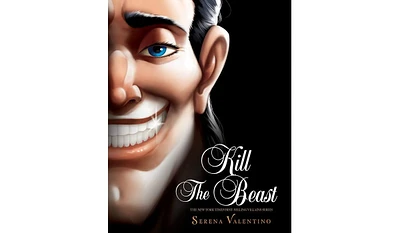Home
Change of the Century
Loading Inventory...
Barnes and Noble
Change of the Century
Current price: $25.99


Barnes and Noble
Change of the Century
Current price: $25.99
Loading Inventory...
Size: OS
*Product Information may vary - to confirm product availability, pricing, and additional information please contact Barnes and Noble
The second album by
Ornette Coleman
's legendary quartet featuring
Don Cherry
,
Charlie Haden
, and
Billy Higgins
Change of the Century
is every bit the equal of the monumental
The Shape of Jazz to Come
, showcasing a group that was growing ever more confident in its revolutionary approach and the chemistry in the bandmembers' interplay. When
Coleman
concentrates on melody, his main themes are catchier, and when the pieces emphasize group interaction, the
improvisation
is freer. Two of
's most memorable classic compositions are here in their original forms --
"Ramblin'"
has all the swing and swagger of the
blues
"Una Muy Bonita"
is oddly disjointed, its theme stopping and starting in totally unexpected places; both secure their themes to stable, pedal-point bass figures. The more outside group
improv
pieces are frequently just as fascinating;
"Free,"
for example, features a double-tongued line that races up and down in free time before giving way to the ensemble's totally spontaneous inventions. The title cut is a frantic, way-out melange of cascading lines that nearly trip over themselves, brief stabs of notes in the lead voices, and jarringly angular intervals -- it must have infuriated purists who couldn't even stomach
's catchiest tunes.
was frequently disparaged for not displaying the same mastery of instrumental technique and harmonic vocabulary as his predecessors, but his aesthetic prized feeling and expression above all that anyway. Maybe that's why
bursts with such tremendous urgency and exuberance --
was hitting his stride and finally letting out all the ideas and emotions that had previously been constrained by tradition. That vitality makes it an absolutely essential purchase and, like
, some of the most brilliant work of
's career. ~ Steve Huey
Ornette Coleman
's legendary quartet featuring
Don Cherry
,
Charlie Haden
, and
Billy Higgins
Change of the Century
is every bit the equal of the monumental
The Shape of Jazz to Come
, showcasing a group that was growing ever more confident in its revolutionary approach and the chemistry in the bandmembers' interplay. When
Coleman
concentrates on melody, his main themes are catchier, and when the pieces emphasize group interaction, the
improvisation
is freer. Two of
's most memorable classic compositions are here in their original forms --
"Ramblin'"
has all the swing and swagger of the
blues
"Una Muy Bonita"
is oddly disjointed, its theme stopping and starting in totally unexpected places; both secure their themes to stable, pedal-point bass figures. The more outside group
improv
pieces are frequently just as fascinating;
"Free,"
for example, features a double-tongued line that races up and down in free time before giving way to the ensemble's totally spontaneous inventions. The title cut is a frantic, way-out melange of cascading lines that nearly trip over themselves, brief stabs of notes in the lead voices, and jarringly angular intervals -- it must have infuriated purists who couldn't even stomach
's catchiest tunes.
was frequently disparaged for not displaying the same mastery of instrumental technique and harmonic vocabulary as his predecessors, but his aesthetic prized feeling and expression above all that anyway. Maybe that's why
bursts with such tremendous urgency and exuberance --
was hitting his stride and finally letting out all the ideas and emotions that had previously been constrained by tradition. That vitality makes it an absolutely essential purchase and, like
, some of the most brilliant work of
's career. ~ Steve Huey

















